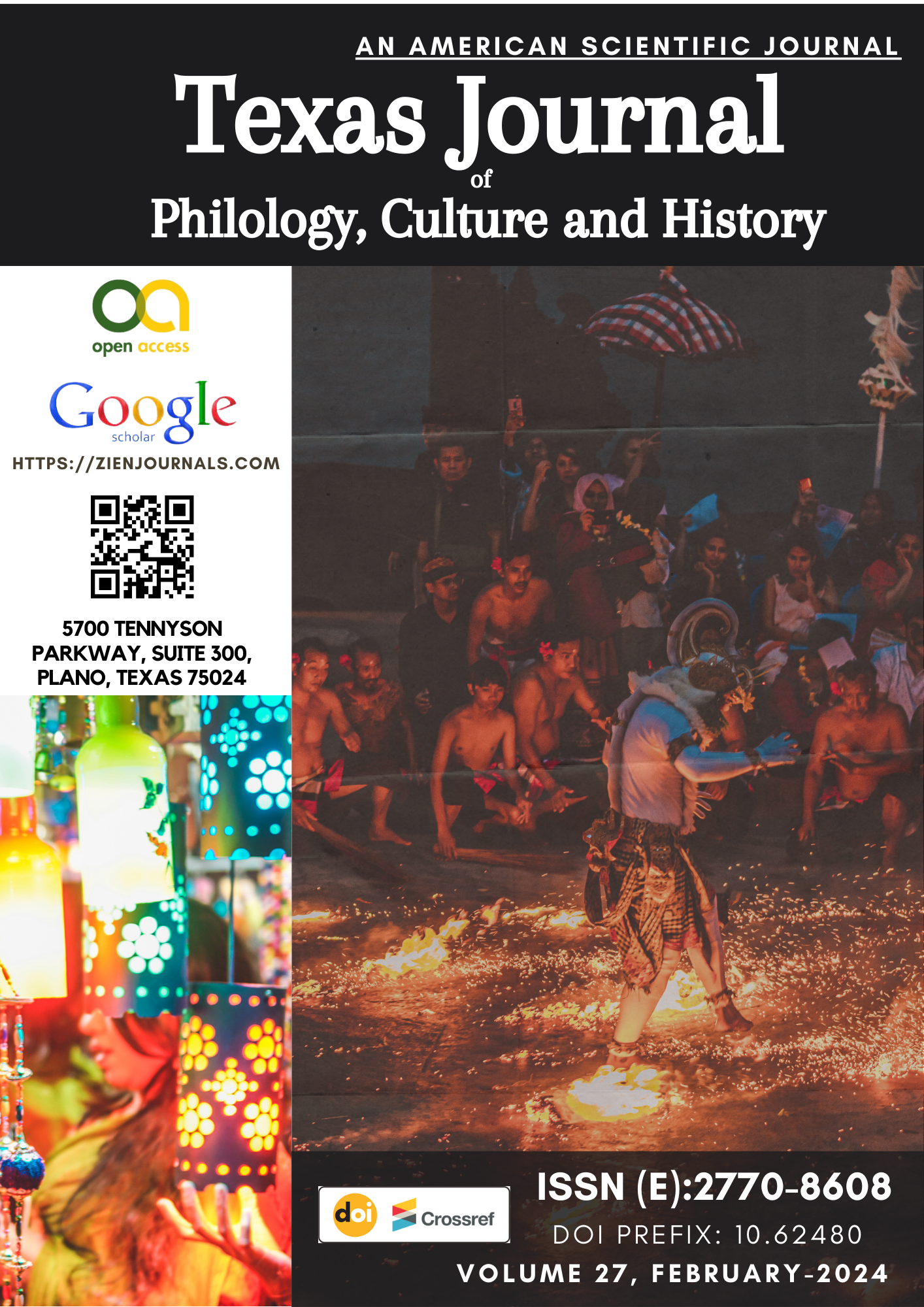##plugins.themes.academic_pro.article.main##
Abstract
Similar and different aspects of Uzbek and English proverbs. Their origin forms the basis of the article. With clear examples made easy to understand and theories proven. The etymology of proverbs, as a part of folklore, is a fascinating subject that delves into the origins and evolution of these traditional sayings within the fabric of society. Proverbs serve as concise, memorable expressions of wisdom and life truths, often reflecting the values, beliefs, and experiences of a particular culture or community. By examining the etymology of proverbs, scholars and enthusiasts can gain a deeper understanding of the intricate connections between language, culture, and society, while also appreciating the enduring relevance of these timeless expressions of human wisdom
Keywords
##plugins.themes.academic_pro.article.details##

This work is licensed under a Creative Commons Attribution-NonCommercial 4.0 International License.
References
- Ahmedov U. Comparative Analysis Of Uzbek And English Proverbs. The American Journal of Social Science and Education Innovations. October 29, 2020.
- A universal proverb definition. Scholars around the world continue to find their own English so-called "working definitions," of which some of the most recent attempts in the language are those by Shirley Arora, Nigel Barley, Otto Blehr, Margaret Bryant, David Cram, Alan Dundes, Galit Hasan-Rokem, George Milner, Peter Seitel, 2021
- Coteus S. Touble never sets like rain. Proverb. – Oxford University Press, 2011
- Mieder W. Proverbs - A Handbook. - Greenwood Press , 2004
